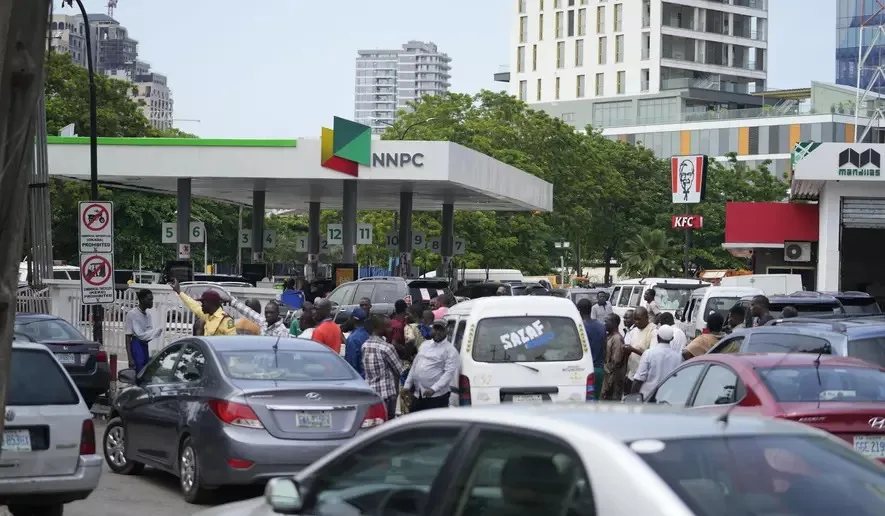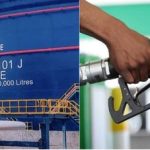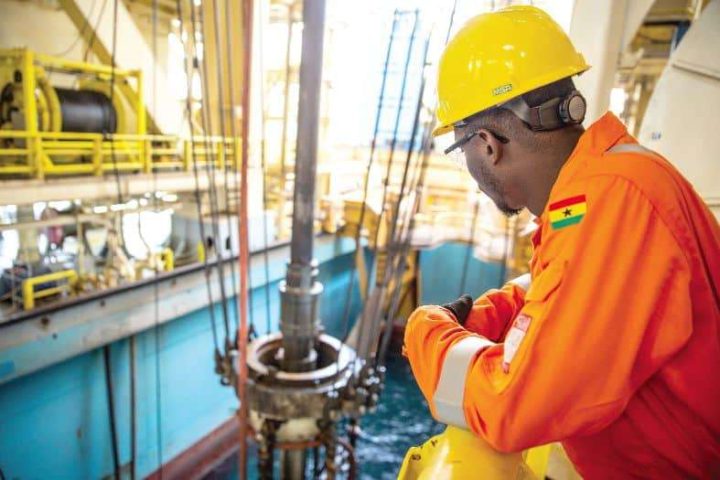A Nation in Limbo: Nigerians and Experts Weigh in on Fuel Crisis
The Nigerian fuel industry is standing at a crossroads and facing a fuel crisis. As fuel prices soar and consumption plummets, petrol stations across the country are on the brink of closure, with roughly 10,000 independent oil dealers preparing to shut down. The situation has affected all sectors of society, from motorists who can no longer afford fuel, to workers losing their jobs in the petroleum sector, and families struggling with inflation due to rising transportation costs.
In response, Nigerians are asking if the fuel crisis spells the end of the petrol stations or a shift toward a new era. With conflicting views from industry experts, government officials, and everyday Nigerians, it’s clear the nation is in limbo. Some experts foresee a new beginning, while others are sounding the alarm on the impending demise of the traditional petrol stations.
Join our WhatsApp ChannelRising Costs and Declining Demand: The Domino Effect
Since the removal of fuel subsidies in May 2023, petrol prices have shot up from N175 to over N1,000 per litre by October 2024, a staggering 488% increase. Consumption has sharply declined, dropping from 60 million litres per day in May 2023 to just 4.5 million litres daily by August 2024, marking a 92% drop.
“Fuel prices have become unbearable,” says Lagos resident, Ayo Dipo, who now commutes via public transport after parking his car indefinitely. “Driving used to be a necessity for my family, but now it’s a luxury we can’t afford.”
The Independent Petroleum Marketers Association of Nigeria (IPMAN) reports that dealers, now struggling to buy truckloads of fuel, have drastically reduced their stock. As IPMAN President Abubakar Maigandi puts it, “Before, our members could buy up to 10 trucks of fuel. Now, many can only afford eight or fewer.”
The ripple effect of this change has impacted workers in the petroleum sector. According to the National Union of Petroleum and Natural Gas Workers (NUPENG), job losses among truck drivers and petrol station attendants are on the rise. “Our members are bearing the brunt,” says NUPENG Secretary-General Afolabi Olawale. “Many petrol stations have closed down, and those still open are barely surviving.”
Experts Warn of “Petrol Desert” in Rural Areas
Industry stakeholders worry that widespread petrol station closures could create “petrol deserts,” particularly in rural regions. With only 16 out of 36 states receiving fuel from the Nigerian National Petroleum Company (NNPC) in August 2024, many rural areas are already experiencing severe shortages.
The Petroleum Products Retail Outlets Owners Association of Nigeria (PETROAN) has raised alarms over the financial impact on smaller petrol stations. PETROAN’s National Public Relations Officer, Dr. Joseph Obele, predicts a wave of closures within weeks. “If nothing changes, about 10,000 of our members will have to shut down within the next 45 days due to financial strain,” says Obele. “The average petrol station can’t survive under current conditions.”
The association has appealed to President Bola Tinubu for a N100 billion grant to stabilise their businesses. “Without support, many communities, particularly in the North and rural areas, may not have a single functioning petrol station left,” adds Obele.
New Opportunities or an Inevitable Decline?
As the crisis unfolds, some experts are cautiously optimistic, seeing it as a chance to rethink Nigeria’s fuel dependency. Renewable energy advocates argue that the petrol station model might be on its way out, but energy demand will remain.
READ ALSO: Fuel Crisis: A Complex Challenge For Nigeria’s Energy Sector As Nigerians Demand Transparency
Dr. Abubakar Sule, an energy economist, believes this crisis might force Nigeria to embrace more sustainable energy solutions. “This might be the push we need to diversify our energy sources,” he says. “In urban areas, where fuel shortages hit the hardest, we are already seeing some shift to solar and electric power.”
Dr. Sule’s view resonates with environmental advocates, who argue that rising petrol prices and station closures could make room for clean energy. However, they recognize the risks involved. “There’s no denying that a sudden shift away from petrol will cause a lot of pain,” he says. “But we have to start looking beyond oil.”
Voices of Nigerians: “We Can’t Survive Like This”
For many Nigerians, however, the focus remains on immediate survival rather than long-term energy plans. With inflation and rising transportation costs, citizens are feeling the crunch.
“Fuel is no longer affordable. Every price hike pushes up food prices, rent, even school fees,” says Abuja-based mother of three, Amina Ahmed. “How can we talk about solar energy or electric cars when we can barely put food on the table?”
Some Nigerians are skeptical that alternative energy solutions would even be feasible for the majority. As petrol prices have driven transportation costs to new highs, more people are abandoning cars and opting for buses and other public transportation. “If they can’t afford petrol, do you think they’ll afford electric cars or solar panels?” asks John Okafor, a mechanic.
Government’s Next Move: To Subsidise or Diversify?
The question on everyone’s mind is what the government will do next. Will it return to fuel subsidies, as some have suggested, or will it support alternative energy?
The administration faces a dilemma. Subsidies could provide temporary relief but would deepen Nigeria’s reliance on oil. However, shifting to alternative energy may bring lasting change but would require substantial investment and a complete overhaul of infrastructure.
President Tinubu’s office has yet to respond to PETROAN’s appeal, and citizens are growing impatient. “If the government wants to save Nigeria from a full-blown crisis, it needs to act fast,” says Dr. Sule. “A strong focus on a mixed energy strategy could bring stability, but that requires both political will and public support.”
Fuel Crisis: The End of an Era or the Dawn of a New Energy Age?
In the end, the future of petrol stations in Nigeria may depend on whether the government and citizens are ready for change. As more petrol stations face closure, Nigerians are left wondering if this is the beginning of the end for traditional fuel or merely the start of a much-needed transition.
For now, the crisis continues, with experts urging a balanced approach. Whether the solution is a return to subsidies or a shift toward renewables, Nigeria’s fuel crisis serves as a reminder that energy dependency comes at a cost—one that Nigerians are paying heavily.
In the words of Lagos resident, Musa Ibrahim, “If this is the future, then we need to prepare, because what we have now is a crisis, not a solution.”
Emmanuel Ochayi is a journalist. He is a graduate of the University of Lagos, School of first choice and the nations pride. Emmanuel is keen on exploring writing angles in different areas, including Business, climate change, politics, Education, and others.
- Emmanuel Ochayihttps://www.primebusiness.africa/author/ochayi/
- Emmanuel Ochayihttps://www.primebusiness.africa/author/ochayi/
- Emmanuel Ochayihttps://www.primebusiness.africa/author/ochayi/
- Emmanuel Ochayihttps://www.primebusiness.africa/author/ochayi/



















Follow Us